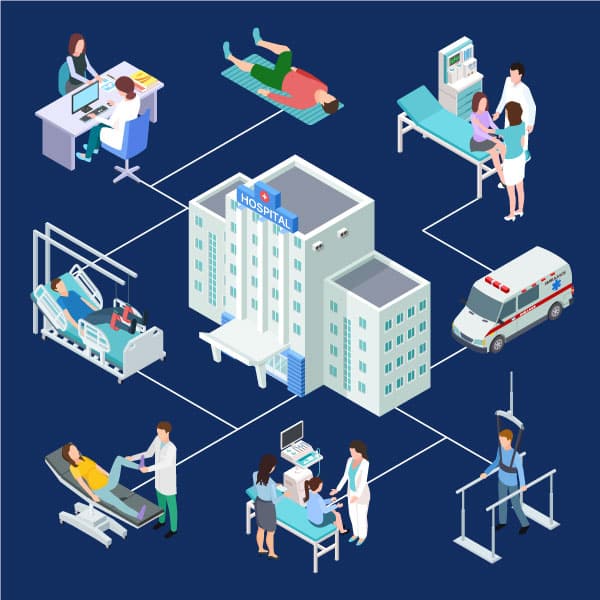5 Benefits of Becoming a Full-Service Healthcare Center

The information age changed how individuals interact with the medical world. In addition to scheduling appointments online and tele-health appointments via video calling, patients are much more likely to research their diagnosis to learn more about causes and treatment. Becoming informed about an ailment helps a patient better articulate their questions and possible concerns to health care professionals. This access to information significantly changes how patients and professionals interact. As patients spend more time researching their ailments, they are more likely to spend time looking into what kind of health care professional will best help them (chiropractor, physical therapist, athletic trainer, M.D. etc.). However, many clinics have adapted to mitigate this task. In a full service health clinic, a patient can visit one health center for evaluation and to work with multiple health professionals for treatment. These multi-disciplinary health clinics help shift patients to the center of attention and elevate their personal care.
In a multi-disciplinary practice (or sometimes called a wellness clinic) several medical specialists work alongside each other to provide a “one-stop-shop” style clinic. The Mayo Clinic famously provides many different services to help a patient in their fight against cancer. Their staff includes doctors, researchers, and scientists all working within their specialties under a united patient-first philosophy. Boston Pain Care provides multiple specialists at the same location to help patients in their fight against chronic pain. Their services include treatment for sleep trouble, medication management, arthritis, neuropathy, herniated discs, migraines, functional rehabilitation, and more.
A full service health practice uses co-located (or closely located) clinics with different specialties coming together under a single patient care philosophy. This type of clinic condones an environment for an advanced and diverse medical team to work together for the benefit of an individual patient. A “one-stop-shop” style allows a patient to walk in the door with multiple health issues and leave the clinic with a comprehensive wellness ‘game plan’ for all ailments.
Although all independent wellness clinics may work in different ways, the idea of many medical professionals all working together is universal. For an example, imagine a patient entering the full service health care clinic in need of treatment. A chiropractor would objectively evaluate the patient and collect data and medical history for the surgeons to determine when surgical intervention might best suit the patient’s treatment. At post-surgery, the chiropractor would evaluate the patient again prior to undergoing rehab to collect baseline. The patient would then work with the physical therapists for rehabilitation while routinely meeting with the chiropractor to monitor progress. Each medical professional involved still works together by sharing data and discussing processes to make sure the patient stays on the best course for healing. It has long been said that two-heads are better than one—or in this example, three medical professionals better than one. Patient experience and medical expertise both increase exponentially in multimodality clinics.
So, what benefits can a clinic glean from becoming a full-service health care practice? Many full-service health care practices enjoy the following:
- Working alongside other medical professionals helps shift the focus to the patient and their condition. Patients are also granted the assurance of several medical professionals’ collective wisdom.
- Staff can evaluate and discuss possible treatments as a team instead of depending on transferring medical records back and forth.
- Having a medically diverse staff may open the door to better solutions for a patient’s healing that may have not been available in a single practice clinic.
- With more specialized practices and medical professionals, it’s natural to see increased traffic within the clinic.
- Working closely with other medical professions naturally leads to sound referrals and new patients for all involved.
The idea of becoming a full service clinic may seem daunting and unreachable at first, but it all begins with small steps. Physical therapy clinics or chiropractic practices may benefit from expanding their own services initially. This may include adding FCEs or Employer Services to the list of offered services. Even small steps toward becoming a full service health care practice will begin to garner the same benefits.
Whatever the first steps may be, JTECH is here with functional evaluation systems to help. The foundation of any practice should include objective data and accurate testing. Contact JTECH Medical today to see how we can help!
